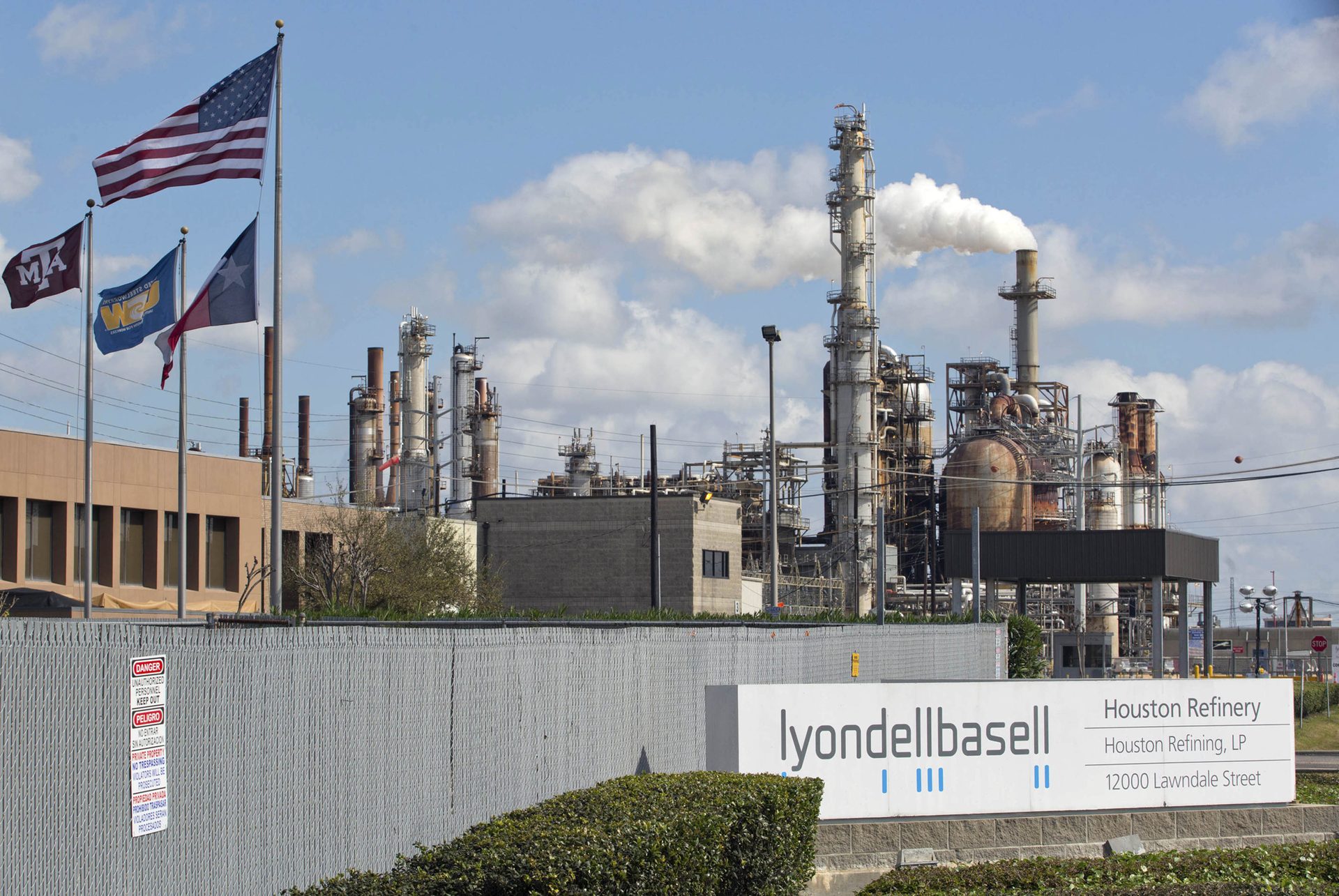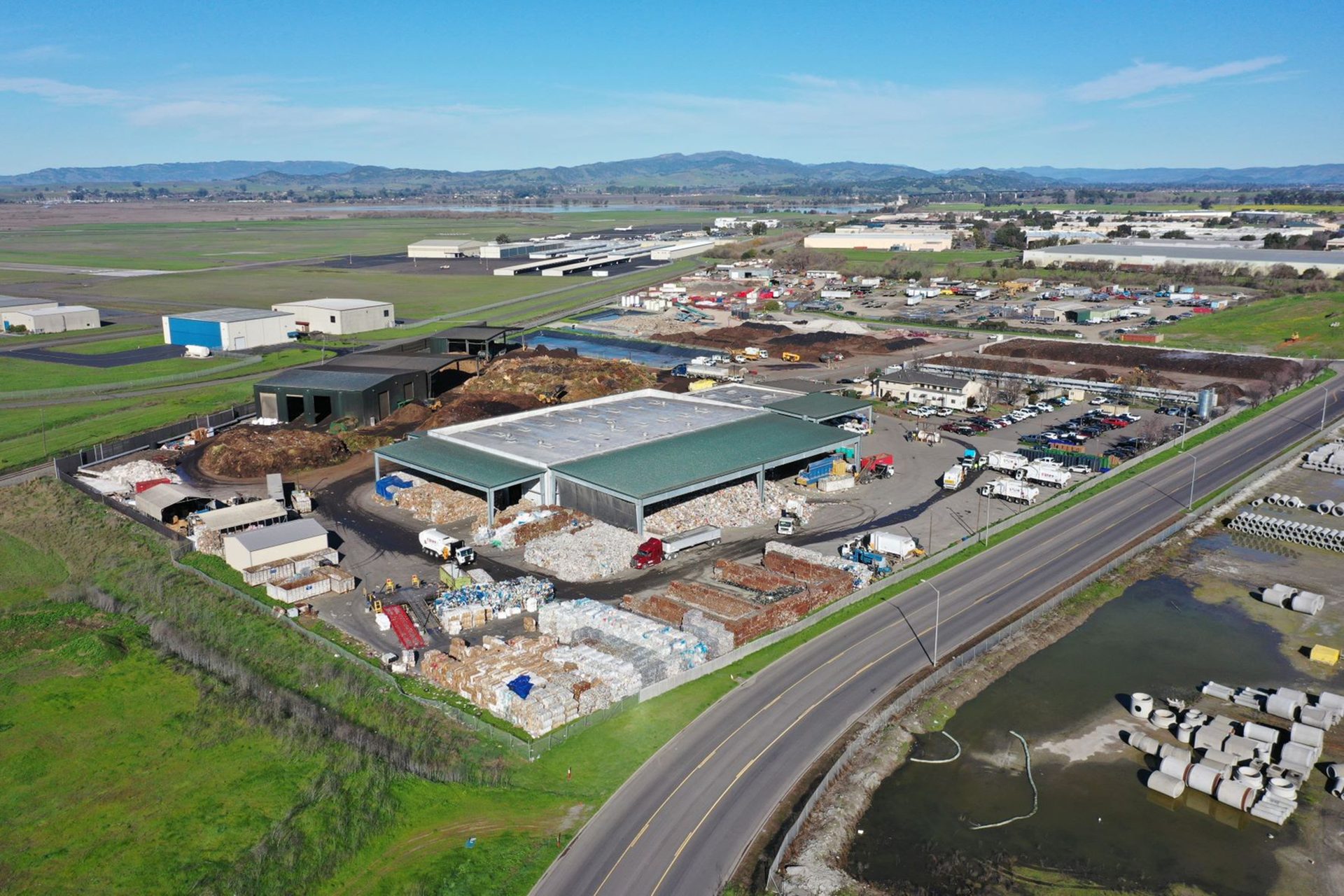
INDUSTRY TRENDS
New PE Resin from Exxon-Mobil Targets e-Commerce and LyondellBasell Look to Scale Circularity
In 2022, oil and gas companies are moving quickly to consolidate long-term growth strategies around circularity and advanced recycling in both Europe and North America. Plus, industry stakeholders in the mechanical recycling segment begin to draw lines.
By Grant Gerke
In a few years, flexible packaging analysts may look back at 2022 as a transformative year when advanced recycling and circularity infrastructure investments took hold. Recently, many oil and gas companies are diversifying product lines and looking hard at advanced recycling technologies, while large investment funds drive mechanical recycling developments in the hope of producing more post-recycled content.
One example is LyondellBasell, a global energy company in the petrochemical industry, which recently announced its Houston refinery is up for sale, and that the company will be closing the facility by the end of 2023.
The company has been making large capital investments in advanced recycling technologies — pyrolysis — in Europe, and this move paves the way for that strategy here in North America. “Once the anchor of its supply chain as a regional chemical company, the refinery no longer fits with its global petrochemical production,” according to LyondellBasell.
"While this was a difficult decision, our exit of the refining business advances the company's decarbonization goals, and the site's prime location gives us more options for advancing our future strategic objectives, including circularity," says Ken Lane, interim CEO, LyondellBasell.
The refinery announcement comes on the heels of a February 2022 press release from LyondellBasell about a European investment in a Circular Plastics fund, led by global venture fund Infinity Recycling. The fund will support early-stage companies deploying and developing advanced recycling technologies with a focus on bringing these technologies to scale in Europe.
ADVERTISEMENT
Exxon-Mobil is another oil and gas supermajor making moves in the circularity push, and the focus is on the ever-growing e-commerce segment. The company announced a new line of polyethylene (PE) resins, called Exceed S Performance, that offer “stiffer, air-tube packaging for products ordered through e-commerce channels.”
Exxon is offering three commercially available grades of the new resin that aim for low-melt pressure and high-output on blown film lines.
The release spotlights the PE film/PE laminate resin grade as an opportunity to increase mechanical recyclability rates and post-consumer recycled content into a growing segment. The PE grade features “improved stiffness, toughness and bag drop survival for warehouse and e-commerce channels,” according to ExxonMobil. This PE grade can include larger pouch sizes and accommodate bulkier, heavier content.
"The innovation opportunities that this performance polyethylene offers have already resulted in successful collaborations with more than 75 customers globally working on more than 100 different applications,” says David Hergenrether, VP of polyethylene, ExxonMobil. “We look forward to collaborating with our customers on new opportunities to advance their products."

LyondellBasell, a global energy company in the petrochemical industry, recently announced that the company is selling Houston refinery and making a shift toward advanced recycling technologies.
Photo courtesy of LyondellBasell
As ExxonMobil looks to increase the supply of PE resin for converters in the North America market, mechanical recyclability developments continue to make news in 2022. Last month, Flexible Packaging reported on Republic Services and its strategy to increase mechanical recycling rates and volumes at its new Polymer Center in Las Vegas. Republic Services is implementing a vertical integration approach — owning the supply chain — to drive down upstream costs by managing the plastic collection through an integrated process from curbside collection of recycled material to production, and delivery of high-quality recycled content for consumer packaging. The company is pointing to tougher mechanical recycling legislation in the western U.S. as an opportunity to secure a more stable supply of post-consumer plastic.
Are Degradable Additives Recyclable?
This is a question being asked by Steve Alexander, CEO of the Association of Plastic Recyclers (APR). In April, the association provided a statement about the effects of degradable additives on mechanical recycling of post-consumer plastics:
“Claims regarding the recyclability of degradable additives are unfounded, untested and possibly misleading as outlined by the U.S. Federal Trade Commission's Green Guide,” says the APR. “No third-party testing data has confirmed these recyclability claims. APR urges companies making such claims to share their supporting data with the recycling community.”
While much has been made of stakeholder collaboration over the last two years, some players may be drawing lines in the sand. The APR is concerned that “degradable additives will have a negative effect on the mechanical recycling of post-consumer plastics because these additives could compromise the integrity or useful life of plastic packaging or durable products made from recycled resins that contain these additives.”

The Recycling Partnership announced $1.6 million in funds to expand and improve polypropylene collection and recycling in the U.S., and the Napa Recycling and Waste Services in Napa, Calif., is one of the seven materials resource facilities (MRFs) to receive money around this initiative.
Photo courtesy of The Recycling Partnership
The association is stressing “degradable” additives will contaminate the plastics recycling stream and must be isolated from recyclable packaging, such as mono-material PE film for instance. The association also cites in its release that it is illegal in Alabama, California and North Carolina to label a plastic product both "degradable and recyclable.
Fast and Furious Developments
Recycling developments around polypropylene (PP) are also heating up in North America and Europe. In the U.S., the Recycling Partnership announced $1.6 mil. in funding around its PP curbside recycling initiative. The curbside recycling initiative for PP launched in July 2020, and these new funds will provide an additional seven grants to materials recovery facilities (MRFs) across the U.S. to boost sortation of PP and support recycling education efforts.
The MRF facilities include Napa Recycling (Napa, Calif.); Cedar Ave Recycling and Transfer Station (Fresno, Calif.); SOCRRA (Troy, Mich.); Republic Services (Oberlin, Ohio); Baltimore County (Md.); Recycle Ann Arbor (Ann Arbor, Mich.); City of Phoenix.
Support for this PP initiative comes from Keurig Dr. Pepper, Braskem, NextGen Consortium and the Walmart Foundation, along with other members of the PP value chain. PP is referred to as a No. 5 plastic, and these comprehensive recycling investments will increase the U.S. recovery by an estimated 22 million pounds annually for established end markets, such as consumer packaging and automotive parts.
In the U.K., Nextek Nextloopp’s food-grade PP recycling project is starting to deliver its PPristine PP prototype resins from post-consumer packaging to 43 participants for further trials, according to the company in April 2022. This builds upon the success of TOMRA’s (Germany) sorting equipment trials in 2021 that achieved 99.9% sorting purity with Nextek’s fluorescent markers.
“The real breakthrough into a sustainable circular economy has been the sorting of food packaging combined with the cleaning and decontamination of PP packaging to food safety standards (levels),” says Edward Kosior, CEO and founder, Nextek, Ltd.
The company says that production trials of food-grade compliant rPP will begin shortly, making over 60 different products from Nextloopp’s four grades of PPristine food compliant and qualified as “INRT grade” resins. NextLoopp will also now fine-tune the required data to compile its dossier for its application to the European Food Safety Agency (EFSA) and Food Drug Administration (FDA) for food compliance.
Video background by selamiozalp / Creatas Video via Getty Images
June 2022 // flexpackmag.com
